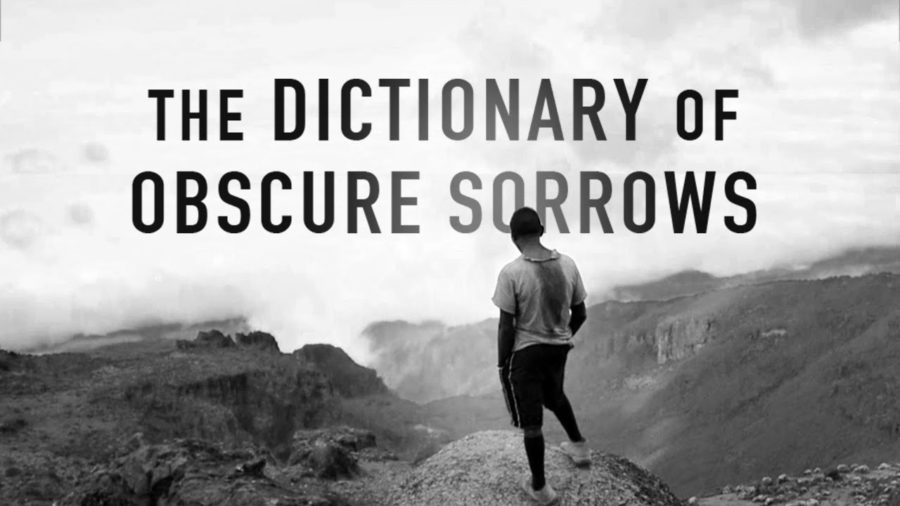The Dictionary of Obscure Sorrows
March 22, 2015
There’s no word in the English language for the desire to disappear, or the eerie tension of a looming thunderstorm, or the realization that each passerby is living a life as vivid and complex as your own. There’s also no word for a spark of eye contact that can leave you blinded for days, or for the moment you began to fear your life would follow a sequence of predictable milestones or the fear that it might never happen that way.
These feelings and emotions that leave us otherwise speechless are defined in the “Dictionary of Obscure Sorrows.” John Koenig, a graphic designer and filmmaker, created the blog Sunday, and a new episode defines a newly invented word for a strangely powerful emotion.
One of the best words from Koenig’s project is “Sonder” or “the realization that each random passerby is living a life as vivid and complex as your own …” — how we often are shaken awake from our egocentrism and have a sudden empathy for those around us. This is an emotion that I have experienced on several occasion but had no words to describe it.
There’s more than just empathy to Koenig’s “obscure sorrow,” “sonder” relates to the infinite number of overlapping stories, in which each of us senses we are the hero while others are the supporting cast or extras. While experiencing “sonder” an individual suddenly occupies all of these roles at once, with our screen time fading while others take the lead.
When coming across one of Koenig’s words, people are likely to ask whether it is made up. The answer is yes, but they are carefully made up words. Koenig crafts each one with proper etymology (word roots, prefixes, suffixes, etc.) People might also ask whether they should use them in everyday life. The answer to this question is also yes. After all, weren’t all words made up in the beginning?
Below I have listed five of the best words from the “Dictionary of Obscure Sorrows” that describe specific, obscure sorrows. Be sure to check out more of Koenig’s project at dictionaryofobscuresorrows.com.
1. Vemödalen
n. The frustration of photographing something amazing when thousands of identical photos already exist — the same sunset, the same waterfall, the same curve of a hip, the same closeup of an eye — which can turn a unique subject into something hollow and pulpy and cheap, like a mass-produced piece of furniture you happen to have assembled yourself.
2. Keta
n. An image that inexplicably leaps back into your mind from the distant past.
3. Catoptric tristesse
n. The sadness that you’ll never really know what other people think of you, whether good, bad or if at all — that although we reflect on each other with the sharpness of a mirror, the true picture of how we’re coming off somehow reaches us softened and distorted, as if each mirror was preoccupied with twisting around, desperately trying to look itself in the eye.
4. Heartworm
n. a relationship or friendship that you can’t get out of your head, which you thought had faded long ago but is still somehow alive and unfinished, like an abandoned campsite whose smoldering embers still have the power to start a forest fire.
5. Sonder
n. The realization that each random passerby is living a life as vivid and complex as your own.







